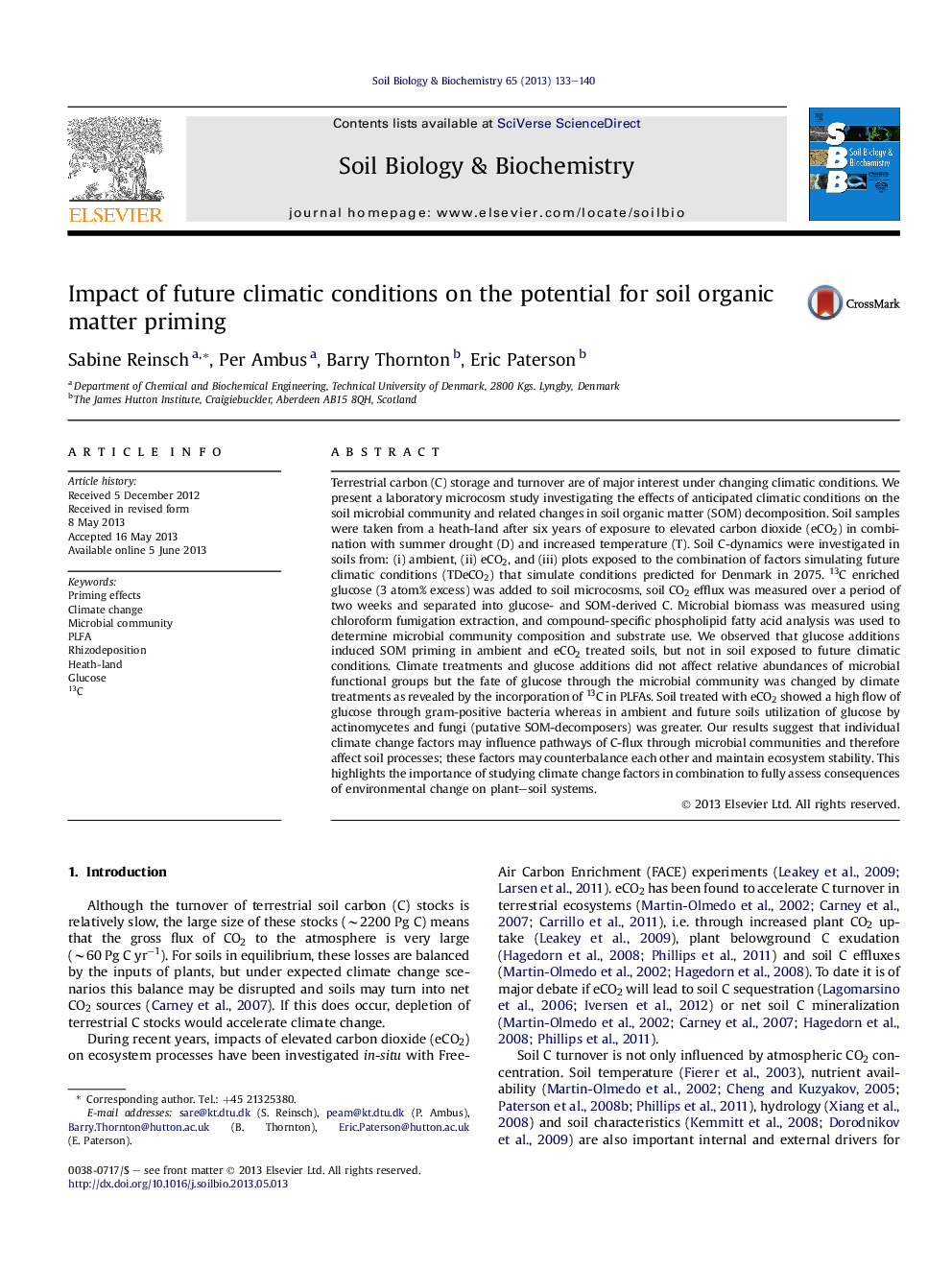| کد مقاله | کد نشریه | سال انتشار | مقاله انگلیسی | نسخه تمام متن |
|---|---|---|---|---|
| 8365206 | 1542619 | 2013 | 8 صفحه PDF | دانلود رایگان |
عنوان انگلیسی مقاله ISI
Impact of future climatic conditions on the potential for soil organic matter priming
ترجمه فارسی عنوان
تاثیر شرایط آب و هوای آینده بر احتمال پتانسیل آلاینده خاک
دانلود مقاله + سفارش ترجمه
دانلود مقاله ISI انگلیسی
رایگان برای ایرانیان
کلمات کلیدی
موضوعات مرتبط
علوم زیستی و بیوفناوری
علوم کشاورزی و بیولوژیک
دانش خاک شناسی
چکیده انگلیسی
Terrestrial carbon (C) storage and turnover are of major interest under changing climatic conditions. We present a laboratory microcosm study investigating the effects of anticipated climatic conditions on the soil microbial community and related changes in soil organic matter (SOM) decomposition. Soil samples were taken from a heath-land after six years of exposure to elevated carbon dioxide (eCO2) in combination with summer drought (D) and increased temperature (T). Soil C-dynamics were investigated in soils from: (i) ambient, (ii) eCO2, and (iii) plots exposed to the combination of factors simulating future climatic conditions (TDeCO2) that simulate conditions predicted for Denmark in 2075. 13C enriched glucose (3 atom% excess) was added to soil microcosms, soil CO2 efflux was measured over a period of two weeks and separated into glucose- and SOM-derived C. Microbial biomass was measured using chloroform fumigation extraction, and compound-specific phospholipid fatty acid analysis was used to determine microbial community composition and substrate use. We observed that glucose additions induced SOM priming in ambient and eCO2 treated soils, but not in soil exposed to future climatic conditions. Climate treatments and glucose additions did not affect relative abundances of microbial functional groups but the fate of glucose through the microbial community was changed by climate treatments as revealed by the incorporation of 13C in PLFAs. Soil treated with eCO2 showed a high flow of glucose through gram-positive bacteria whereas in ambient and future soils utilization of glucose by actinomycetes and fungi (putative SOM-decomposers) was greater. Our results suggest that individual climate change factors may influence pathways of C-flux through microbial communities and therefore affect soil processes; these factors may counterbalance each other and maintain ecosystem stability. This highlights the importance of studying climate change factors in combination to fully assess consequences of environmental change on plant-soil systems.
ناشر
Database: Elsevier - ScienceDirect (ساینس دایرکت)
Journal: Soil Biology and Biochemistry - Volume 65, October 2013, Pages 133-140
Journal: Soil Biology and Biochemistry - Volume 65, October 2013, Pages 133-140
نویسندگان
Sabine Reinsch, Per Ambus, Barry Thornton, Eric Paterson,
